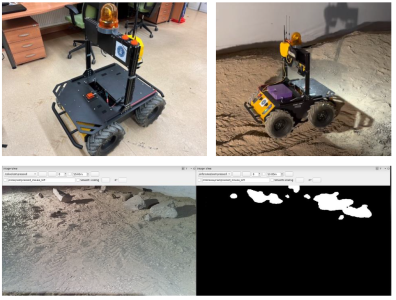Cognition - distributed data processing system for lunar activities

Lunar exploration has only started within the last few decades, and interest is continuing to grow. Space agencies and private investors are looking at the opportunities that it brings and see more commercial interest in it. According to a Euroconsult study, 51 missions to the Moon are planned in 2020–2029, compared to just seven in the previous decade, allowing us to better explore Earth's natural satellite and prepare for long-term lunar exploration and, in the future, deep space. Analysts predict that by 2029 the lunar exploration market (both governmental and commercial entities) will be worth around $2.7 billion, that 40% of all space projects will be lunar, and that among them 18% will be commercial.
The development of lunar landers and rovers will have a key place in exploration activities. Their main mission will be to collect, aggregate, and process increasing amounts of complex data: vision data, through radar, lidar, scientific payload data to telemetry data. The distance to the Moon significantly impedes the transmission of data to the Earth's surface, forcing us to move at least part of the data processing to the Moon's surface. Cognition as a rover-lander distributed system allows to approach this problem, having an onboard computer and data processing unit mounted on the rover, responsible for queuing and processing the first and less complex operations. The lander’s powerful data processing unit built of redundant DPUs with higher computing power will be responsible for complex data processing and storage. The reason behind Cognition is to limit the transfer of data to the Earth's surface, to assure that only valuable data is being sent to the ground and to introduce more autonomy into lunar surface exploration.
As part of this study KP Labs, together with Poznan University of Technology, performed a baseline analysis on system feasibility, investigated a new architecture for the future rover and lander onboard data processing, benchmarked it against existing solutions and explored the applicability of ROS system.
